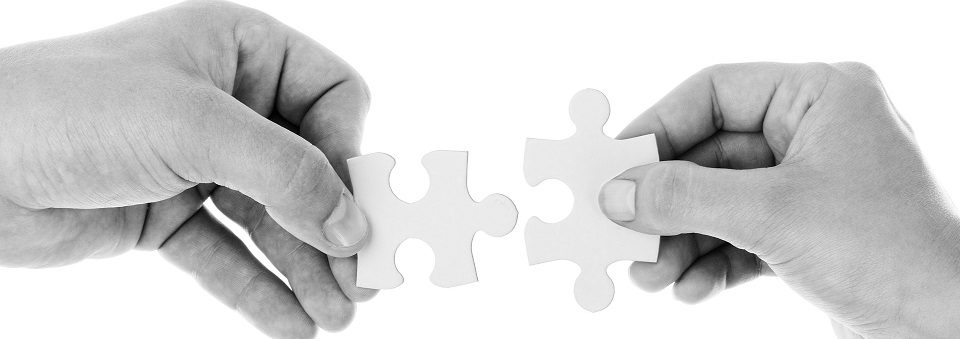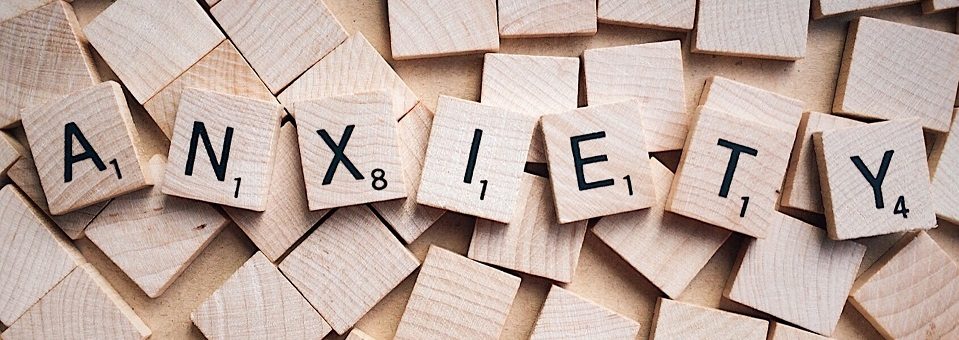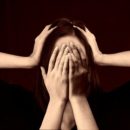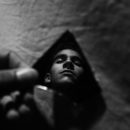Popular Posts
Want to become a patient?
Upcoming Events
Most Recent Articles
OCD Books & OCD Websites
This is a recommended list of OCD books and OCD websites that I consider to be essential reading for individuals with obsessive-compulsive disorder. In addition to my formal training in OCD treatment, these OCD books and websites have had a profound impact on how I conceptualize and treat OCD. This list is not intended to be exhaustive but instead includes only those resources that I have read personally and consider to be the “best of the best.” I will update this list periodically as I come across other “must read” books, websites, and resources for people with OCD. Please note: In order to keep this list streamlined and useful, unfortunately I can’t accept requests for additions to this list. As such, comments have been disabled for this post. Books About OCD Freedom From OCD by Jon Grayson Dr. Jon Grayson’s Freedom from OCD is often the first book I mention when asked for OCD book recommendations. Dr. Grayson’s book has had a tremendous influence on the way I think about OCD. His model for conceptualizing and treating OCD unfolds over the course of the entire book. Thus, if you read this book, I strongly encourage you to read it from cover-to-cover rather than only reading those sections that relate to your specific symptoms. (Grayson,...
Read MoreOCD & Checking: Part 2 (Mental Checking)
Behavioral Checking (Overt Checking) Many examples of compulsive checking rituals in OCD involve direct inspection of a target stimulus by sight, sound, or feel. Common OCD checking behaviors include relocking doors, visually examining the position of one’s parking brake, or holding one’s hands above stove burners in order to detect warmth. Behavioral checking is often accompanied by the thought, “Did I do it the right way?” These checking behaviors are often referred to as behavioral checks, manual checks, or overt checks. Overt rituals (by definition) are visible behaviors that can be perceived by external observers. However, in some cases, overt rituals may be subtle or purposefully hidden in order to avoid embarrassment. Mental Checking (Covert Checking) In contrast, other compulsive checking rituals can only be perceived by the individual engaging in the behavior. These types of OCD rituals are thought-based and are sometimes referred to as mental checking or covert checking rituals. Mental checks are often accompanied by thoughts such as, “Did I do it the right way?”, “Am I feeling the right way?”, or “Did I do this for the right reason?” Mental checking is the cognitive counterpart of behavioral checking, and many covert checking rituals overlap extensively with the mental rituals that characterize Pure-O OCD. Whereas overt checking involves obtaining evidence directly...
Read MoreChecking & OCD: Part 1 (Checking for Safety)
Compulsive checking often begins innocently enough. One check here, two checks there… But OCD’s greed knows no bounds. What starts out as a simple check “just to make sure” eventually spirals into disabling OCD doubt that can come to predominate innumerable situations and scenarios. Checking behaviors often emerge in situations in which “being irresponsible” might result in catastrophic outcomes, guilt, anxiety, or regret. OCD-related checking is usually driven by a need to obtain absolute certainty that nothing bad will happen. Compulsive checking is typically harder to control in “high stakes” scenarios and in situations in which you perceive that you have personal responsibility for the outcome. Unfortunately, at least some degree of personal responsibility is present in most situations. Moreover, many people with OCD often feel that safety is tenuous or that disasters are lurking just one mistake away. Consequently, people with severe checking-related OCD may experience very little solace in their day-to-day lives. Compulsive checking behaviors are probably the most diverse of all OCD rituals. Variations in checking-related behaviors dominate in most forms of OCD, even types of OCD that you might not necessarily consider checking-related variants of the disorder (e.g., hit-and-run OCD, scrupulosity, perfectionism, HOCD, other sexual obsessions). In this multi-part post, we’ll talk about some of the goals of checking and...
Read MoreHOCD: Homosexual OCD & Sexual Orientation OCD
Fear of Being Gay (Homosexual OCD / HOCD) Emerging sexuality can be confusing for any teen or young adult, and gay teens face a variety of unique challenges over the course of adolescence. In addition to learning to understand their own sexuality, gay teens must navigate complex situations and pressures that may not be relevant for straight teens. They must also deal with opinionated parents, friends, and others who sometimes hold differing views about sexuality. Anxiety, distress, and confusion are often part of this process. This post is not about the anxiety associated with being gay or with “coming out” but instead discusses homosexual OCD (“HOCD”), an anxiety disorder that affects a small number of individuals. HOCD is not unique to teens but can occur at any age. What is HOCD? Homosexual OCD (“HOCD”) is a specific subtype of obsessive-compulsive disorder (OCD) that involves recurrent sexual obsessions and intrusive doubts about one’s sexual orientation. Straight individuals with homosexual OCD experience obsessive fears about the possibility of being gay. Their HOCD obsessions often consist of unwanted thoughts, impulses, or images that uncontrollably pop into consciousness. To reduce the anxiety brought on by their obsessions, individuals with HOCD engage in a variety of rituals that focus on “proving their true sexuality” or reducing their perceived “vulnerability”...
Read MoreSexual Obsessions in OCD (Obsessive-Compulsive Disorder)
Sexual obsessions in OCD are recurrent unwanted sexual thoughts, such as the fear of being attracted to something unwanted, taboo, or morally “unacceptable” based on one’s particular worldview. Although all forms of OCD can be debilitating, sexual obsessions can be especially confusing and disabling for sufferers because sexual obsessions target one’s fundamental identity as a social being. In addition to anxiety, which characterizes most obsessions, individuals with sexual obsessions often experience extreme guilt, shame, hopelessness, and depression. Individuals with OCD with sexual symptoms often mistakenly consider themselves deviant, disgusting, or evil. Moreover, incorrect assumptions about the true causes of their unwanted sexual thoughts make them less likely to seek treatment or to share their symptoms with others. In my Palm Beach County, South Florida psychological practice, I treat many individuals who have lived with sexual obsessions for many years before seeking treatment. Sexual obsessions often leave one feeling isolated and alone. Moreover, in efforts to avoid symptom triggers, people with unwanted sexual thoughts often drop out of school, quit their jobs, end relationships, or make other life-altering decisions that paradoxically make their symptoms worse. What are Sexual Obsessions? Sexual obsessions in OCD can take many forms. Most sexual obsessions involve unwanted thoughts, ideas, impulses, or images focusing on sexual content. Some individuals with sexual obsessions are...
Read MoreBody Dysmorphic Disorder (BDD) Symptoms
Symptoms of Body Dysmorphic Disorder (BDD) Body dysmorphic disorder (BDD) is a somatoform disorder that closely resembles obsessive-compulsive disorder (OCD). Symptoms of body dysmorphic disorder include excessive concern about perceived physical flaws, defects, or imperfections. Individuals with body dysmorphic disorder become obsessed with these unwanted aspects of their appearance and perform a variety of rituals and avoidance behaviors in order to disguise or conceal these “flaws.” BDD symptoms typically result in extreme distress and a variety of social and occupational difficulties. Body dysmorphic disorder symptom areas vary between individuals and commonly focus on the skin, hair, weight, and specific facial features, such as the nose (Philips, 2005). In The Broken Mirror (2005), Dr. Philips breaks down the frequency of different types of BDD concerns: Skin 73% Genitals 8% Hair 56% Cheeks/cheekbones 8% Weight 55% Calves 8% Nose 37% Height 7% Toes 36% Head size/shape 6% Abdomen 22% Forehead 6% Breasts/chest/nipples 21% Feet 6% Eyes 20% Hands 6% Thighs 20% Jaw 6% Teeth 20% Mouth 6% Face size/shape 20% Back 6% Legs overall 18% Fingers 5% Lips 12% Neck 5% Buttocks 12% Shoulders 3% Chin 11% Knees 3% Eyebrows 11% Ankles 2% Hips 11% Body build/bone structure 1.50% Ears 9% Facial features general 1.40% Arms/wrists 9% Facial muscles 1% Waist 9% In my South Florida...
Read MoreBody Dysmorphic Disorder (BDD)
What is Body Dysmorphic Disorder (BDD)? Body dysmorphic disorder (BDD) is not formally classified as an anxiety disorder; however, it shares many overlapping features with anxiety disorders like obsessive-compulsive disorder (OCD). In contrast to OCD which typically focuses on specific external feared outcomes, body dysmorphic disorder involves hyper-attention to one or more perceived bodily defects, imperfections, or flaws. BDD “flaws” are experienced as distressing and intolerable. In some cases, the imperfections that bother individuals with body dysmorphic disorder can be perceived by other people, but BDD magnifies and distorts these imperfections in the eyes of the sufferer. In other cases, individuals with BDD notice and attend to “flaws” that cannot be readily perceived by others. Regardless of the form of one’s symptoms, body dysmorphic disorder is associated with extreme distress and shame. Moreover, because BDD-related “flaws” are often perceived as being permanent, inescapable, or un-fixable, many individuals with body dysmorphic disorder experience hopelessness, depression, self-loathing, and suicidal thoughts. Due to shame about their appearance, many people with BDD go to great lengths to keep their symptoms a secret. Individuals with body dysmorphic disorder often use mirrors to check or scrutinize their appearance. They also engage in a variety of avoidance behaviors in order to mask or hide their perceived defect(s) from others. They often avoid going out...
Read MoreWorry & “What If” Questions
Anxiety, Worry, & What If Questions If you have anxiety, it’s likely that you wrestle with worry and “what if” questions. Many what if questions are easily recognizable and start with the obvious, “What if…?” Others are more subtle and begin with phrases like “How am I ever going to…?” By definition, what if questions prompt us to solve problems that haven’t actually happened yet. The possibilities are truly endless. These worries may involve fears about current situations or about situations set far in the future. What if questions are often difficult to resist because by answering them, we often feel that we become more mentally “prepared” or “ready” to deal with life’s uncertainties. In fact, many individuals feel stressed out if they ignore their worries. They think that because what ifs involve potentially dangerous situations, it’s irresponsible or reckless to ignore these worries. By answering what ifs, they hope to have a better degree of control if and when these situations actually arise. Many individuals with anxiety disorders like obsessive-compulsive disorder (OCD) or generalized anxiety disorder (GAD) struggle with what if questions and other worries for hours each day. How often does this “mental preparation” actually pay off for people with anxiety? Almost never. That’s because mental reassurance (a type of mental ritual) is...
Read MoreHit-and-Run OCD
“Hit and run” OCD involves the fear of accidentally hitting a pedestrian while driving. In most cases of hit-and-run obsessive-compulsive disorder, fears focus on unintentionally killing, injuring, or maiming a victim. Other individuals worry about causing car accidents or causing other vehicles to swerve and hit pedestrians. Fear of Driving Hit-and-run OCD, or motor vehicle accident OCD, is distinct from other syndromes that involve anxiety about driving or the fear of car accidents. Hit and run OCD differs from panic– or agoraphobia-related driving avoidance, in which individuals fear driving due to the possibility of having a panic attack while in the car. Diagnosis of hit and run OCD is slightly more complicated in cases in which one fears “losing control” while driving, as this symptom can reflect either panic or OCD. In the case of panic, this fear is based on panicking and “losing control” or “going crazy”, whereas in OCD this fear is based on acting on an unwanted impulse (e.g., impulsively swerving). Hit and run OCD differs from “driving phobia” largely in terms of the rituals/compulsions that are present in OCD. Driving phobia involves more generalized fears. MVA-OCD also has a different symptom profile than post-traumatic stress disorder (PTSD) which might develop following a car accident and include flashbacks and other PTSD...
Read MoreScrupulosity
What is Scrupulosity? Scrupulosity is a form of obsessive-compulsive disorder (OCD) characterized by religious and/or moral obsessions. Scrupulosity can sometimes be difficult to recognize because even within a single faith community, religious beliefs and practices vary widely. There is no singular belief or behavior that is diagnostic for scrupulosity. Instead, scrupulosity is best regarded as a pattern of beliefs and behaviors associated with excessive worry about having committed a sin or engaging in immoral acts. Concern may focus either on thoughts or actions already taken or the possibility of committing sins in the future. This results in significant emotional distress, guilt, and despair. Scrupulous individuals also worry about the sinfulness of having bad thoughts. This experience is very similar to individuals with OCD who experience harm-related obsessions (e.g., the fear of harming a child or loved one). People with scrupulosity often wonder why they’re having bad thoughts and worry that these thoughts have special meaning. They also mistakenly assume that they wouldn’t be having these thoughts if the thoughts weren’t true. Because the sinfulness of thoughts is discussed in the Bible and other religious texts, many scrupulous individuals take this as “proof” that they should be able to control their thoughts at all times. For individuals who hold this belief, it is especially important...
Read MoreScrupulosity & OCD: Religious/Moral Symptoms
Question: I have scrupulosity (religious/moral obsessive-compulsive disorder), and I am triggered by religious posts on Facebook. When I see a religious post, I feel like I have to repost it or God will be mad at me. I also worry about what other people think about these reposts, which then leads me to fear that God will judge me for worrying. Any suggestions for treating scrupulosity (religious OCD)? Religious Scrupulosity/OCD For many people with OCD/scrupulosity, treatment can be especially confusing at first. Every action or inaction can feel potentially dangerous, which is why scrupulosity often goes untreated for so long. The very fact that you recognize that this is related to obsessive-compulsive disorder is excellent. It also sounds like you have insight about your OCD symptoms and the OCD positive feedback loop. Many people with religious obsessions don’t realize that obsessions can target religious/moral topics. Their OCD tells them that it’s impossible to engage in religious practices “too much” or “too frequently.” Scrupulosity/OCD Belief Clarification The first step in your recovery is to clarify your religious beliefs. If you don’t do this, exposure and response prevention for your scrupulosity will likely be unhelpful. The types of questions you should ask yourself are: Does God expect me to be perfect? If I make a mistake...
Read MoreExposure and Response Prevention: An Analogy
Exposure and Response Prevention (ERP) Exposure and response prevention (ERP) is just like a fitness program for your brain. However, instead of shaking up your fitness level, it’s designed to shake up stubborn OCD symptoms. Let’s expand on this analogy. Reasons for Doing Exposure and Response Prevention (ERP) People don’t adopt fitness routines for no reason at all; physical exercise is not a random activity. We don’t accidentally buy gym memberships or wake up on treadmills. Exercise is always purpose-driven and typically is intended to improve one’s quality of life in some quantifiable way. Common goals for exercising are related to health, aesthetics, or the feelings it evokes. Treatments like exposure and response prevention (ERP) are also intended to enhance your life in a meaningful way. Just like with exercise, your ERP efforts will be driven by your own personal motivators. Maybe you want to spend less time on your rituals so that you can be living more deliberately and less reactively. Perhaps OCD has caused your world to shrink, and you want to take it back. Maybe you’re motivated to fight OCD so that you can be a better parent or spouse. Maybe you simply want your days to be filled with more fun and less panic. These reasons form the basis of...
Read MoreStarting Exposure Therapy: What’s it Like?
For anyone new to exposure-based therapy, such as exposure and response prevention (ERP), there is often much anticipatory anxiety about starting treatment. “What is it? What will it be like? How bad will it be? Can I handle it? Will I be forced to do things I’m unwilling to do?” These uncertainties are typical for most people beginning the process. They’re also understandable. When you begin treatment, it often feels like you’re putting your fate in someone else’s hands. Because that someone is typically a stranger (i.e., your therapist), it would be a bit odd if you didn’t feel that way. Moreover, if you know the basics of exposure therapy, you understand that eventually you’ll be confronting the very things you fear. Some people accept this prospect with dread but others feel a sort of nervous anticipation. Although they expect that treatment will be challenging, they also realize that life without treatment is often more challenging. Starting therapy is a calculated risk. Sure, it’s possible that treatment will be hard. However, it’s probable that life without therapy will be hard. If you remember the old Choose Your Own Adventure books from the 80’s/90’s, you have a good idea about how therapy isn’t. If you or your kids were a fan of the series, you...
Read MoreTreatment of Unwanted Thoughts & Sensations in OCD
In my post about the treatment of sensorimotor OCD, a reader asked about the ultimate goal of treatment. Should the goal of treatment be to never notice an unwanted thought or symptom? Suppressing Unwanted Thoughts & Sensations in Pure-O & Sensorimotor OCD Let’s explore this idea in detail. Suppose I adopt the goal of being 100% symptom free. After all, this is the endpoint of treatment that most people are seeking. What are the implications of this goal? You will likely slow down your progress. Why? Because every day you will encounter something that violates your expectations. Unwanted thoughts are a normal part of the human experience. Everyone has thoughts that are unwanted, aggressive, selfish, perverse, or deviant at times. For people without OCD, these thoughts tend to be fleeting because the thoughts themselves aren’t treated as significant. They are accepted as normal brain noise. These thoughts may register, but they quickly get buried beneath other more pressing or interesting thoughts. For people with Pure-O OCD, unwanted thoughts may occur over and over again. Often these thoughts are considered dangerous or preventable, or they may be regarded as problems in need of solutions. Many people with Pure-O OCD become emotionally invested in filling their heads with the “right” kinds of thoughts. It is largely...
Read MoreThought Control & OCD (Obsessive-Compulsive Disorder)
OCD & Thought Control Can I learn to eliminate my OCD thoughts? I hear this question all the time from new patients who are searching for ways to suppress their unwanted thoughts. When I answer this question with a resounding “no”, there is often much surprise and grief. After all, this is why they’re coming to see me. Many people with Pure-O OCD imagine thought control to be the only way to improve the quality of their lives. Unfortunately, thought control conceptualized in this way is not an attainable goal in OCD treatment. Our brains just don’t work like that. I explain it like this, “A penguin obsessed with flying is an unhappy penguin.” Expecting thought control to work is a little bit like a penguin flapping its wings and expecting to fly. It may work for the other birds, but it won’t work for the penguin. The penguin’s wings are not designed to work this way. This doesn’t mean that penguins can’t be happy. It simply means that a penguin who becomes preoccupied with an unattainable goal is likely to experience a lot of unnecessary suffering. Our brains are not equipped to simply ignore situations we perceive as threatening. If you were walking in the woods and noticed a snake slithering up next...
Read MoreFear of Saliva Swallowing & Choking: Treatment & Symptoms (OCD)
Question: I have sensorimotor OCD, and I’m suffering from conscious swallowing. My main fear is that I’ll choke or swallow my own saliva whenever I’m speaking or singing. Any tips for how to tackle this fear via exposure and response prevention (ERP)? Great question. Consistent with general exposure and response prevention (ERP) principles, your exposures need to address your specific feared outcomes. Feared outcomes can vary greatly for individuals with the same presenting problem. I discuss this idea in a different context here: feared outcomes in OCD. For people with a fear of swallowing or drinking saliva, there are several possibilities. Fear of Potential Embarrassment: Social Anxiety If you are afraid of potential embarrassment due to coughing or choking while speaking, your symptoms might actually reflect underlying social anxiety (rather than somatosensory OCD). However, it’s also possible for social phobia symptoms to coexist with sensorimotor OCD. I touched on the intersection of OCD and social anxiety in my post about the fear of cursing/swearing/blurting out obscenities. I also discussed it more extensively in my post on compulsive swallowing. Those posts describe somewhat different OCD symptom domains, but the social fears sound quite similar to what you’re describing. Social anxiety fears can be targeted via behavioral exposures that do not actually involve saliva swallowing. You...
Read More




































